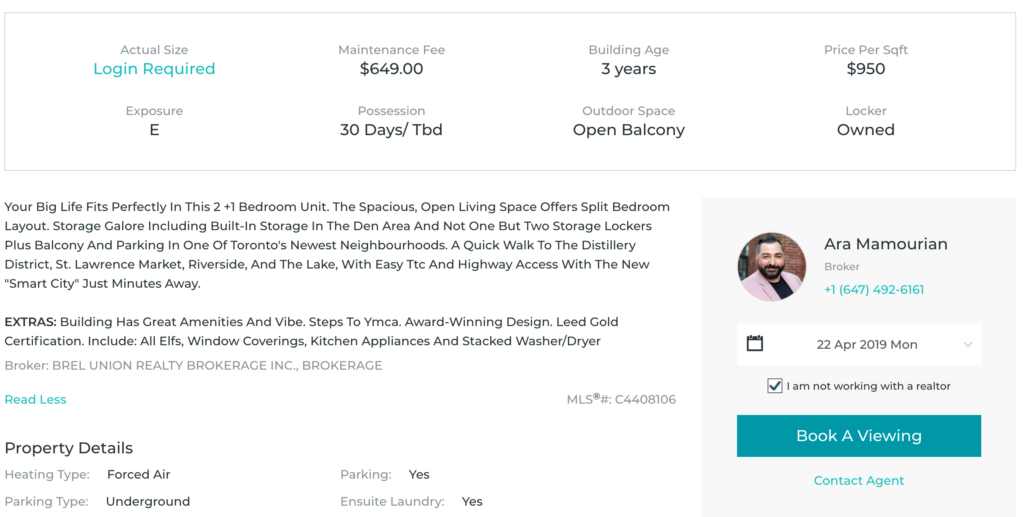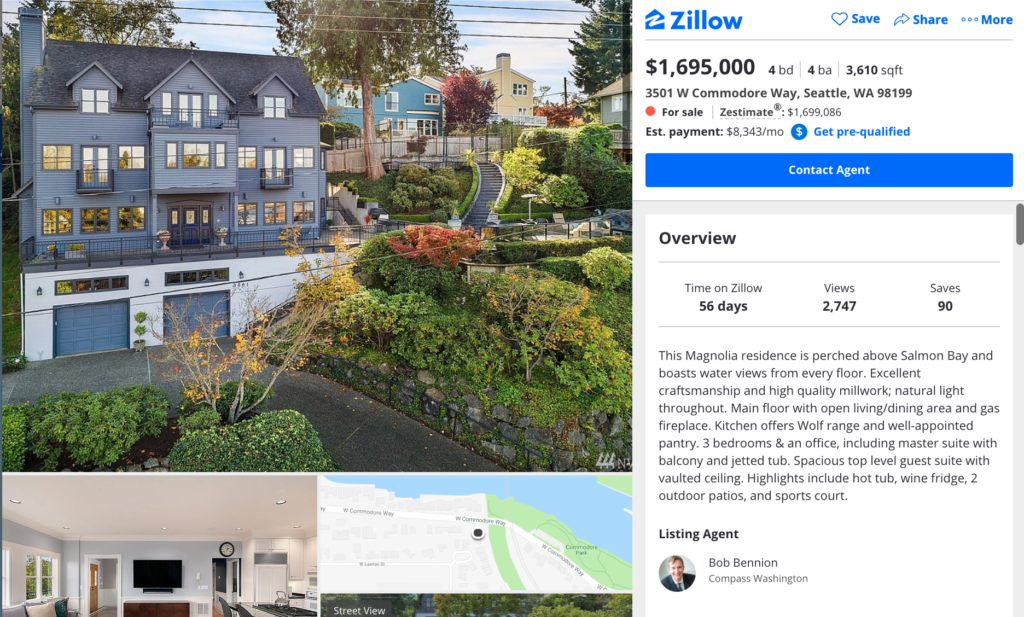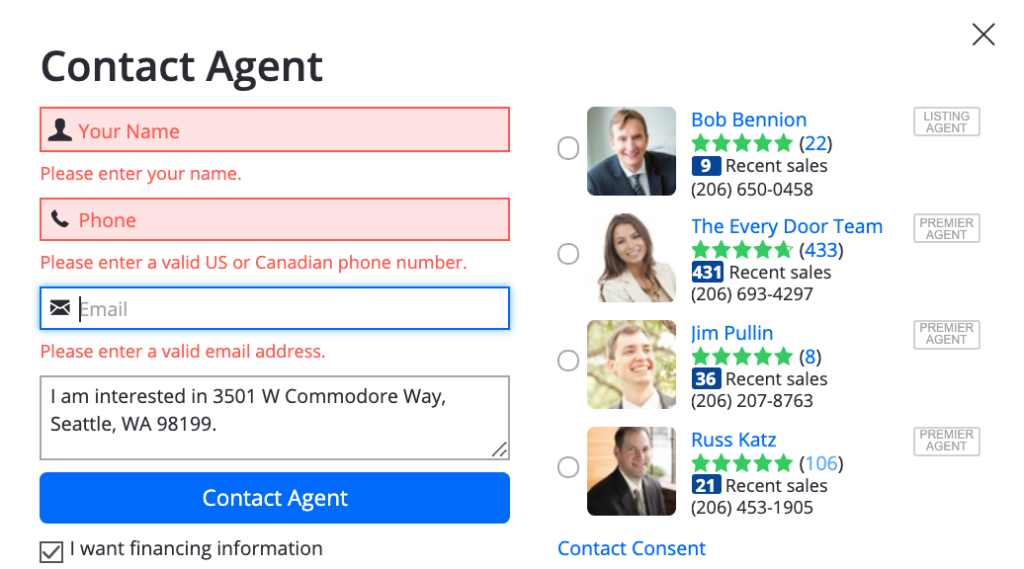Originally published on GetWhatYouWant.ca. Updated December 2019.
Zillow has landed in Canada, and not without controversy. Is it good news or bad news for REALTORS? Is this the end of real estate as we know it? Are the things you’ve heard about Zillow true?
There’s a lot of misinformation about Zillow, partly because it’s new to Canada and new is scary, and partly because some of the big brokerages seem determined to mislead their agents in a quest for self-preservation.
Today’s blog is for REALTORS. Below, you’ll find 9 common myths about Zillow so you can decide for yourself…is Zillow friend or foe?
But before we begin….what is Zillow?
Zillow is a media company that makes money by selling advertising on its website. It’s the leading real estate portal in the United States.
In the US, the Zillow website:
- Lists homes available for sale and for rent
- Contains data about homes not currently for sale
- Profiles real estate agents and their customer reviews
- Provides Zestimates (home valuations based on computer algorithms)
- Allows potential Buyers to connect with a property’s listing agent and up to three other agents who have paid to advertise in a particular zip code
The Zillow Group also owns several other real estate related websites and companies, including Trulia (another home search portal) and Zillow Home Loans. They’ve also recently launched an iBuyer platform in several American cities (but that’s a whole other blog).
In Canada, Zillow currently lists homes for sale and profiles real estate agents and reviews. Canadian brokerages have to opt-in to share their listings with Zillow, so it’s not an all-encompassing property search website yet. Currently, Zillow is not yet offering the Premier Agent advertising program to agents.
Now onto debunking the myths…
Zillow Myth #1: Zillow is a real estate brokerage
Zillow is a media company – they sell advertising, not houses. They don’t represent Buyers and Sellers and they don’t employ real estate agents.
(I should point out that Zillow is in fact licensed in a few states in order to be compliant for their iBuying program, but they don’t actually transact as a brokerage and they use local agents to facilitate those sales).
Zillow Myth #2: Zillow intends to become a real estate brokerage, and the current advertising model is a ruse to get real estate data.
False. Zillow has repeatedly stated that they have no intention of becoming a real estate brokerage. Unlike some of the other real estate portals in Canada (for example, Redfin, Condos.ca, Zolo and Zoocasa), Zillow isn’t seeking to be licensed by Canada’s real estate boards and associations and doesn’t want to represent Buyers and Sellers.
Zillow has been operating as a media company in the US for 13 years…if their business model is a ploy to become a brokerage, it’s the slowest-moving, least successful ploy ever.
Zillow Myth #3: Zillow collects referral fees from agents in exchange for providing leads.
Some anti-Zillow brokerages in Canada are perpetuating the myth that agents have to pay referral fees to Zillow for leads.
Truth: Zillow does not collect referral fees or charge for leads. They aren’t in the lead-selling business – they are in the advertising business, just like Google and Facebook.
Since 2006, Zillow has operated an advertising model (not yet available in Canada) that agents can opt into, called Zillow Premier Agent. While the details of the Canadian Premier Agent program have yet to be released, in the US, agents can pay to have their contact information appear next to active listings in particular zip codes. Agents decide how much they want to spend and which zip codes they want to target, and much like Google and Facebook advertising, they ‘bid’ for their ad (i.e. contact information) to be seen.
Full disclosure: Zillow is testing a model in some US markets that are under-served by Premier Agents, whereby agents pay a “performance advertising expense” on a successful sale instead of bidding for ads. It is possible that by the time Zillow launches it’s paid program in Canada, that this will be the norm.
It’s important to note that Canadian and American agents can be active on Zillow without paying to be Premier Agents. They can create a profile, collect reviews from past clients and promote their listings to Zillow’s users without having to pay a single penny. And yes, the listing agent’s contact information is displayed on each one of their listings.
Zillow Myth #4: My brokerage has opted out of sharing data with Zillow, so I can’t have a Zillow profile.
Truth: Any Canadian agent can have a profile on Zillow and collect reviews.
If your brokerage has not signed a data-sharing agreement with Zillow, your listings will not appear on the website, and you cannot directly upload your own listings. If you want to promote your listings on Zillow, you’ll have to join a brokerage that has signed a data-sharing agreement.
Zillow Myth #5: Zillow sells an agent’s leads back to them.
I get it. Finding buyers and sellers is the hardest part of our business. For years, we’ve been taught that when you get a listing, you need to capitalize on it to build your business. So you send out postcards to the neighbours in case they want to sell their house too; you host open houses in the hopes of convincing those unwitting/unrepresented Buyers to buy a house from you; you eagerly respond to REALTOR.CA leads and contemplate double-ending the sale; you want to ‘list to last’ and get 3 more sales from every listing! It’s no surprise that so many REALTORS think they ‘own’ the leads or people who are interested in the homes they list for sale.
Truth bomb: That’s not how it works anymore.
It’s your Sellers’ house and it’s their listing (not yours).
They’re paying you to SELL THEIR HOUSE, not use their home to generate extra income for yourself.
Most Buyers don’t want to work with the Listing Agent; they want an agent who will work exclusively in their best interests.
Here’s how it works on Zillow:
- If you’re the Listing Agent, your name and contact info appears first, next to your listing. If people want to ask you question or work with you, they’ll call you. There’s no cost to appear next to your own listing and it happens automatically.
- If you choose to advertise with Zillow, you’re paying to have your contact information show up on someone else’s listing, not your own.
So any way you look at it, you aren’t paying to buy back your own leads.
Zillow Myth #6: Before Zillow, I got all the leads from my listings.
Newsflash: Other agents have been getting the ‘leads’ generated by your listings for years.
More than 80% of Canadian brokerages already share their listings with 10,000+ real estate websites via IDX (internet data exchange) or the DDF (data distribution facility). Your listings are probably on my website right now, and I’m already servicing the Buyers who reach out to me about them.
Truth: With IDX and the DDF, the listing brokerage’s information is indicated on every listing, usually in small print at the bottom of the listing, with the website owner’s information and contact form front and centre. The listing agent’s contact info isn’t even on the listing.
Here’s how a BREL listing appears on another popular brokerage’s website. Note that I had to expand the ‘More Details section to even get the listing brokerage information, and the actual BREL listing agent’s name and contact information is not displayed.
With Zillow, the brokerage’s AND the listing agent’s information is listed first, and a lot more prominently than anything we see on an IDX or DDF listing. Here’s what a listing on Zillow looks like in the US:
If you click on ‘Contact Agent’, here’s the screen that pops up. If a potential Buyer wants to contact the listing agent from Zillow, they can click on the first link…and the Buyers who want someone to represent their interests instead of the Sellers’, can contact one of the Zillow Premier agents.
Zillow Myth #7: We have REALTOR.CA, so Zillow will never catch on in Canada. It’s different here.
REALTOR.CA is a great tool that has served us well for years and will continue to be an important real estate portal in Canada…but we’ve been late to respond to changing consumer needs and have missed the opportunity to modernize the online experience. Consumers want a user-friendly website and app. They want data. They want choices in how they search for a home.
Zillow receives 186 million unique visitors every month and had 109 million annual visits from international audiences in 2018. 4 out of 5 US homes have been viewed on Zillow. Buyers and Sellers love it.
Think Canadian audiences are different? Amazon is Canada’s biggest e-commerce retailer by a huge margin and the #5 most visited website in Canada. 53% of Canadians subscribe to Netflix vs. 9% to Crave TV. Canadians want the same thing as Americans: convenience and a progressive online experience.
REALTOR.CA, launched in 1996, received 42 million visitors in 2018, or 3.5 million visitors per month. That’s impressive. In comparison: Zillow started displaying Canadian listings in October 2018 and gets 500,000 Canadian visitors a month…despite displaying less than half of the listings and not having done any consumer-targeted advertising yet. I think it’s safe to say that Canadians like Zillow too.
Zillow Myth #8: My Sellers don’t care if their home is advertised on Zillow.
I don’t buy it. Sellers hire a REALTOR because they want their property to be seen by as many potential Buyers as possible. They want the highest price and the quickest sale possible, and they know that marketing is an integral part of that. Sellers who don’t believe marketing matters sell their homes themselves.
Zillow Myth #9: The data on Zillow isn’t reliable.
Truth: In Canada, Zillow gets their listing data directly from the MLS, so new listings, price changes and sales are automatically updated on the website.
Zillow doesn’t list all of the homes that are for sale because some brokerages have chosen not to share their data.
We don’t work for Zillow…so why do we care?
- I firmly believe that Canadian home Buyers deserve a better digital home search experience. Buyers should be able to search for a home on a beautiful platform that’s intuitive and has the data they want and mirrors the online experiences they have while researching and purchasing almost any other goods or services.
- I believe that Toronto home Sellers deserve to have their homes seen by as many potential Buyers as possible. That doesn’t mean that REALTOR.CA and agent/brokerage websites aren’t important too – but we only need to look south to see which digital portals most Buyers prefer.
- I worry about the consequences that will flow from the protectionist and anti-consumer behaviours that we’ve witnessed since Zillow announced they were coming to Canada. I can’t think of any industry that has survived by putting their own interests ahead of their consumers’ interests.
- I think that our jobs as REALTORS is to do the best thing for our clients. Every time.
Is Zillow for you?
In my opinion:
- Getting a profile on Zillow is a no-brainer. It’s free, and it’s one more way for potential Buyers and Sellers to find you online.
- Asking for reviews on Zillow? Also a no-brainer. It’s a free way to build your digital reputation and brand. Buyers and Sellers almost always read reviews before hiring an agent.
- Should you share your listings with Zillow? It’s the best thing for your Seller, and if your goal is to do what’s right for them, your listings should be on Zillow (and on every other real estate platform out there). There’s no cost to promote your listings on Zillow.
- Should you advertise on Zillow? The Premier Agent program hasn’t launched in Canada yet, but my American REALTOR friends have had mixed experiences with it. It’s not for everybody. Paid Zillow advertising works well if you have a generous advertising budget, a commitment to responding to leads quickly and the skills to convert potential Buyers. I have plenty of friends who make $8 for every $1 they spend in Zillow advertising. Teams and brokerage-level advertising seem to bring the most success. Time will tell if the Premier Agent program works in Canada.



